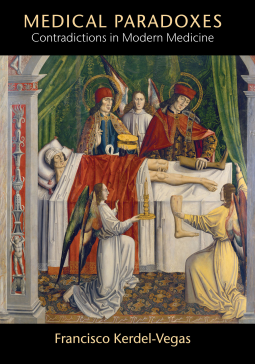
Medical Paradoxes
Contradictions in Modern Medicine
by Francisco Kerdel-Vegas
This title was previously available on NetGalley and is now archived.
Send NetGalley books directly to your Kindle or Kindle app
1
To read on a Kindle or Kindle app, please add kindle@netgalley.com as an approved email address to receive files in your Amazon account. Click here for step-by-step instructions.
2
Also find your Kindle email address within your Amazon account, and enter it here.
Pub Date 16 Jan 2019 | Archive Date 5 Feb 2019
Talking about this book? Use #MedicalParadoxes #NetGalley. More hashtag tips!
Description
Medicine is not a precise science. There are always several options to manage and cure a disease. The best help for the treating doctor comes from the patient. The better informed the patient is, the more helpful this is to the physician.
The patient should be conscious of the paradoxes his physician has to face treating each individual case. A successful patient/physician partnership is essential for the successful treatment and cure of the disease.
The essential rules of the medical ethics remain constant since the beginning of history… first do no harm (Hippocrates).
Medicine advances every day; millions of people remain unaware of such changes. In an effort to inform of such changes properly, especially those connected with preventive medicine, is a key factor in the global impact of medicine.
Many diseases, like leprosy, are still largely feared on an exaggerated basis; it is important that the general public is properly informed. Leprosy is a curable disease that no longer requires isolation (leprosaria); it is not contagious whilst being treated.
It is essential that the general public understands the basis of medicine, and books dedicated to this purpose should be read by young students as a part of their humanistic education.
Available Editions
| EDITION | Ebook |
| ISBN | 9780995541511 |
| PRICE | $8.99 (USD) |
| PAGES | 200 |
Average rating from 3 members
Readers who liked this book also liked:
Carine Laforest;
Children's Fiction





